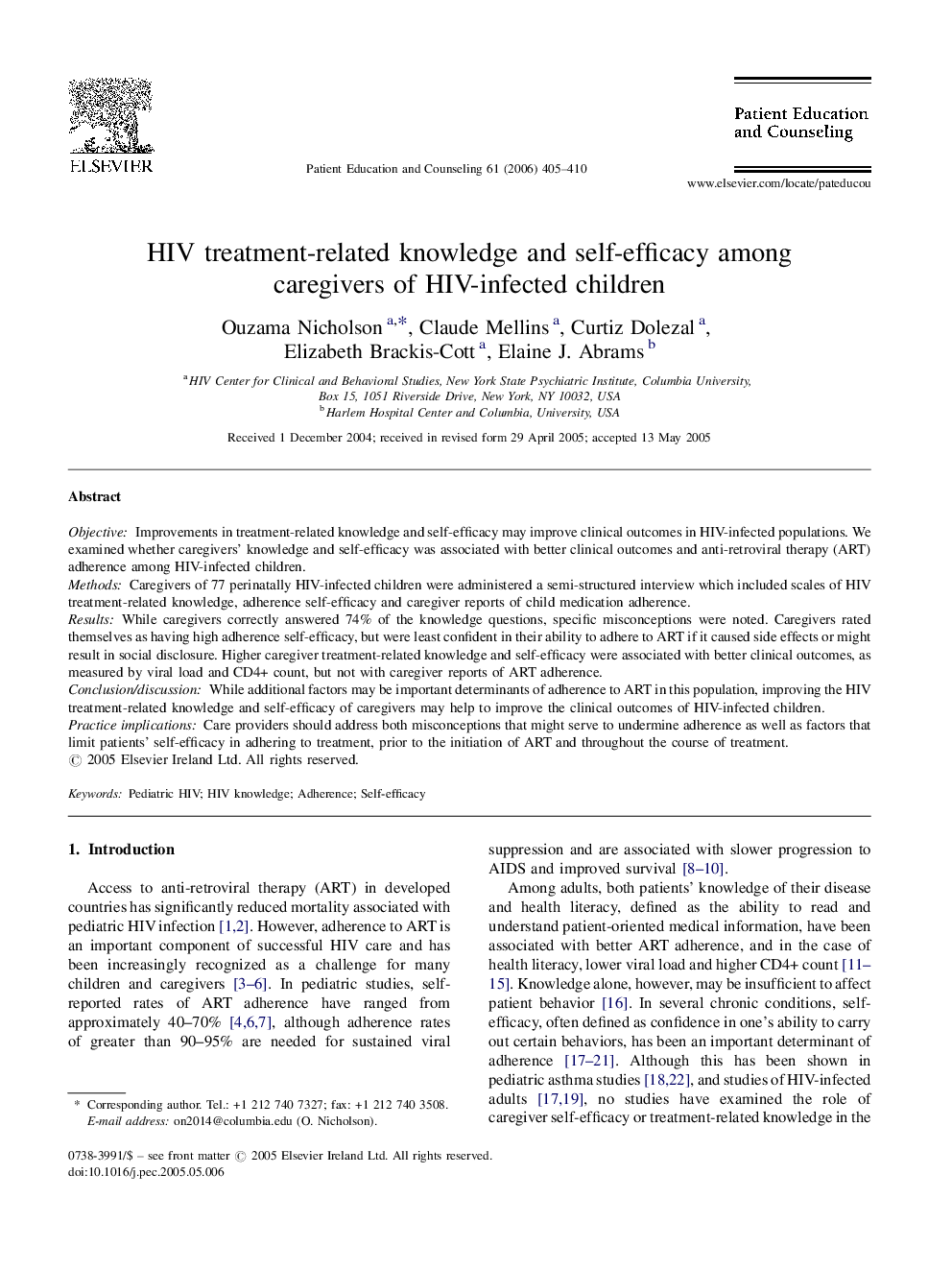| Article ID | Journal | Published Year | Pages | File Type |
|---|---|---|---|---|
| 3815455 | Patient Education and Counseling | 2006 | 6 Pages |
ObjectiveImprovements in treatment-related knowledge and self-efficacy may improve clinical outcomes in HIV-infected populations. We examined whether caregivers’ knowledge and self-efficacy was associated with better clinical outcomes and anti-retroviral therapy (ART) adherence among HIV-infected children.MethodsCaregivers of 77 perinatally HIV-infected children were administered a semi-structured interview which included scales of HIV treatment-related knowledge, adherence self-efficacy and caregiver reports of child medication adherence.ResultsWhile caregivers correctly answered 74% of the knowledge questions, specific misconceptions were noted. Caregivers rated themselves as having high adherence self-efficacy, but were least confident in their ability to adhere to ART if it caused side effects or might result in social disclosure. Higher caregiver treatment-related knowledge and self-efficacy were associated with better clinical outcomes, as measured by viral load and CD4+ count, but not with caregiver reports of ART adherence.Conclusion/discussionWhile additional factors may be important determinants of adherence to ART in this population, improving the HIV treatment-related knowledge and self-efficacy of caregivers may help to improve the clinical outcomes of HIV-infected children.Practice implicationsCare providers should address both misconceptions that might serve to undermine adherence as well as factors that limit patients’ self-efficacy in adhering to treatment, prior to the initiation of ART and throughout the course of treatment.
